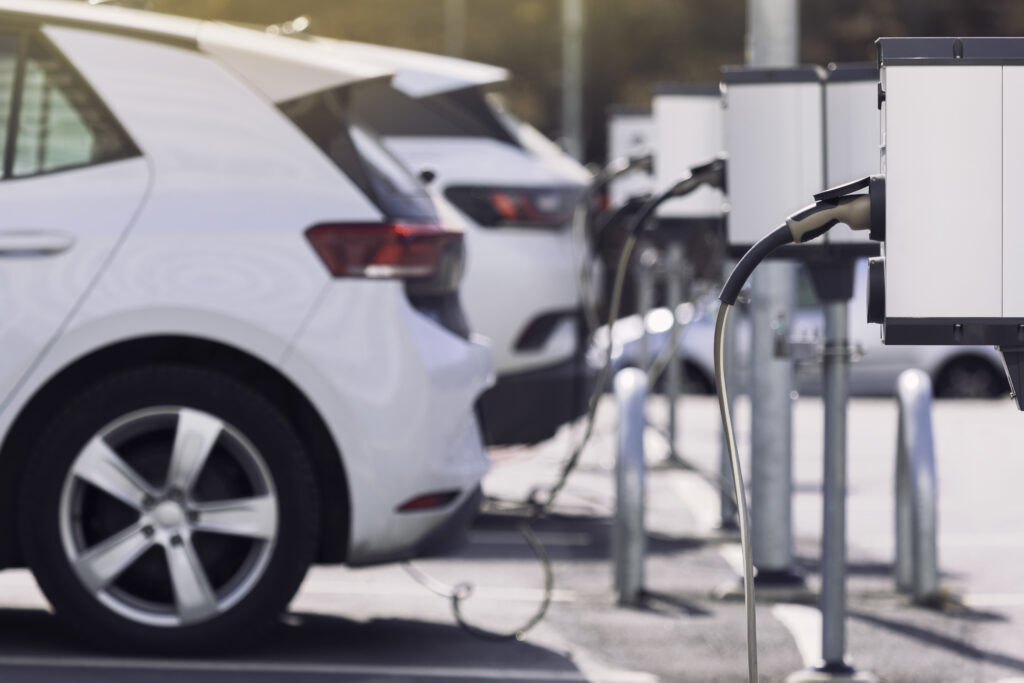We’ve written before about what you should know when buying a car. But what if you’re selling a car? Whether you want to upgrade your ride to a newer model or if you simply need to part ways with your current vehicle, the selling process requires preparation. Today, we’ll walk you through the process of selling your car with this step-by-step guide, ensuring you have a smooth and successful car sale.
Prepare Your Vehicle for Sale
As you prepare to put your car on the market, be sure to make the car ready for any potential buyers.
First, you’ll want to thoroughly clean your car, both interior and exterior. Clean, well-maintained cars make a good first impression on buyers and can often increase the offer you receive.
Next, assess the overall condition of your vehicle. With a thorough look over the body and mechanical components of your car, you’ll have a better idea of any necessary repairs you’ll need to address before selling. Small repairs and maintenance like minor dents and scratches or replacing worn-out brake pads improve both the appearance and functionality of the car.
If you’re not sure about your vehicle’s condition, schedule a pre-sale inspection with a trustworthy mechanic. These inspections help you identify any hidden issues your car has and allow you to address them before listing.
Gather Paperwork for Sale
When you sell your car, it will be important to gather all of the needed paperwork. The following are the essential documents that you’ll need to sell your car.
- Car Title: Your vehicle’s title is the legal document that proves your ownership. Titles are issued by your state’s government and will need to be transferred to the new owner to complete the sale. In some rare cases, vehicles won’t have a title. We’ll cover what to do in those situations in a later section.
- Service Records: Gather records of repairs or maintenance your vehicle has undergone. These records can give your potential buyers peace of mind that the vehicle has been well-maintained, as well as contextualize the vehicle’s current condition.
- Original Sales Record: Are you the original owner of the vehicle? Having the original sales record is a good way to verify your car’s history.
- Vehicle History Report: A vehicle history report is a concise and official way to disclose a vehicle’s mileage, potential issues, ownership history, and any accidents or weather damage the car has experienced.
- Bill of Sale: A bill of sale is a legal document that outlines the terms of the sale and protects both parties.
- Any Warranty Information: If your car is still under warranty, be sure to obtain all of the relevant warranty information to show potential buyers.
By proactively obtaining and sharing these documents, you’ll display transparency that buyers will appreciate, and it can greatly streamline the selling process.
Consider Price
The right price can mean the difference between selling and not selling. When you set your vehicle at the right price, you’ll attract the right buyers and be more likely to make a successful sale. While the price you sell your car for is technically up to your discretion, the fairest and smartest price will be influenced by a variety of factors, including mileage, model year, general condition, and the demand in your local market.
If you want a better idea of your vehicle’s current market value, you can look at local listings for similar vehicles in your market, as well as consult online valuation tools like Kelley Blue Book. Other factors can also influence the price of your car, such as transferable warranties, how recently you’ve replaced tires or brakes, and more.
How Are You Selling?
There are two primary options for selling your car: you can either trade it in at a dealership or sell it with a personal listing. Let’s look at the pros and cons of each arrangement.
Trade-In/Instant Cash
Trading a car in or selling it for instant cash to a dealership can be a convenient option that simplifies the transaction from the seller’s standpoint.
Benefits:
- Convenience: When you trade in, you sell your current vehicle and purchase a new one under the same roof, making the process much simpler.
- Helps pay for a new vehicle: Trading in allows you to put the value of your current vehicle towards the downpayment on another one.
Downsides:
- Overhead cost: Because dealerships are paying for their space, in addition to refurbishing and reselling your car, it becomes financially necessary for them to pay you less than the true value of your vehicle so they can still make a profit. For that reason, a dealership will usually pay less for your car than a private buyer would, with all other factors remaining the same.
Listing
Selling through a personal listing is a great option if you want to prioritize selling for a higher price and have the time to put into it.
Benefits:
- Receive more money: Since private buyers don’t need to worry about keeping a dealership running, profit margins aren’t as much of a consideration, so they will often be able to pay more for your vehicle than a dealership would.
- Greater control: As a private seller, you will have far more control over the listing price, negotiation, and final terms of the sale.
Downsides:
- Man hours/effort: Selling a car on your own will require more time and effort on your part. If you need to sell quickly or want to prioritize convenience, selling privately might be difficult. As a seller, you’ll have to set aside time to create listings in various online marketplaces, respond to potential buyers, schedule in-person meetings, and more.
- Scammers: Public listings, especially with high-price items like vehicles, tend to attract scammers. When you post a listing, be wary of suspicious offers or behaviors. If an offer sounds too good to be true, it usually is, and if a buyer requests a bizarre or unsecured payment method, take a step back. When meeting up with strangers, take precautions like meeting in a public, visible place and verifying the validity of their payment before completing the sale.
If you want to give your listing the best chance at attracting buyers, you’ll want to go for quantity in the places you post. Some of the most popular places to post car listings are online markets like Facebook Marketplace, Craigslist, and any number of automotive classified sites. You can also attract “real-world” attention by placing a “For Sale” sign in your car’s window and posting about it on social media to leverage your personal and professional network.
Cars are significant purchases and have a lot of influence on a person’s daily life, so buyers will expect your listings to be detailed so they can make an informed decision. You’ll want to be forthright about any and all relevant information about your vehicle, including items like the following in your listing:
- Make and model
- Model year
- Overall condition
- Maintenance history
- Unique features or selling points
- High-quality photos from different angles
Personal Safety and Privacy
When selling anything privately, especially a vehicle, it’s crucial to be smart about your own safety and privacy. Remember these essential precautions as you sell your car.
- Meet in public: Be sure to arrange any in-person meetings in well-lit, public locations and only during daylight hours. This keeps everything out in the open, ensuring your safety and discouraging scammers.
- Bring a friend: Safety in numbers. When you have one or more friends with you during meetups, scammers or violent individuals will think twice before trying anything.
- Check insurance for test drives: Before allowing any buyer to test drive your vehicle, take care to verify their insurance information and make certain that it will cover them if they get in an accident with your car.
- Be ready to reject unusual requests: If you see that a buyer has an unusual request regarding payment or meetups, trust your gut and don’t be afraid to cut off contact.
- Release of Liability/bill of Sale: Have a release of liability or a bill of sale ready. Make sure that it clearly states the terms of the sale and that it releases you from future responsibility and liability for the vehicle once the buyer drives away with it.
- Remove personal information: Carefully search the car for any forms or documents that can identify you with personal information. Also, go through any electronic systems or built-in devices that might have your personal information in them, such as navigation systems or entertainment systems that require you to log into a personal account. You don’t want a stranger to have a map directly to your home or have access to your accounts.
- Remove license plates: When the sale is completely finalized, remove the license plates from your vehicle. Check your local regulations for properly returning them or disposing of them.
Form of Payment
Which forms of payment are you willing and able to accept from buyers? In order to keep yourself safe from possible scammers, make sure that you only accept forms of payment that are both traceable and secure.
Some of the most common payment options are:
- Bank transfer: By using a bank transfer, you make certain that the funds are directly and securely transferred. Before you finalize the sale, verify with your bank that the transaction has been completed and the funds have been deposited into your account without issue.
- Venmo/PayPal: Platforms like these offer convenient and secure digital payments. However, it’s vital to keep a look out for fraudulent activity, so be sure to verify that the payment you receive is legitimate before concluding the sale.
- Cashier’s check: Cashier’s checks from reputable banks are an easy way to get assurance that a potential buyer is able to pay. As with other payment methods, make sure to verify that the check is authentic before proceeding with the sale.
It’s generally recommended in vehicle sales to avoid accepting personal checks or large sums of cash. There’s no way to be sure a personal check won’t bounce after the sale, and cash, especially in large quantities, exposes you to the risk of accepting counterfeit bills. In either case, you’ll be out a lot of money, and the fraudulent buyer will be miles away with the car.
Selling Without a Title
We mentioned earlier that you’ll need a title to sell your vehicle. While there are legitimate situations that cause you to not have a title, be advised that cars without titles can make potential buyers suspicious, so you’ll have an easier time selling if you do have one on hand. So what do you do if you don’t have a title? That will depend on the reason you don’t have it.
The car once had a title that has since been misplaced
If your car has a title, but you can’t find it, it’s usually pretty simple to apply for a duplicate title from the DMV of whichever state the car was registered in. All things considered, this is generally fairly cheap, anywhere from $25 to $100.
It also might be possible, depending on your location, to transfer ownership of the vehicle with your state’s DMV. This arrangement allows you to sell the vehicle to a buyer, but it will still require the buyer themselves to request a replacement title. You’ll have to work this out with your buyer as a term of the sale.
The car is an antique
Though most vehicles these days have titles, this wasn’t always required. As recently as 1975, many states didn’t issue titles. If you have an antique car that never had a title, you might not be able to get one from your state. In these cases, you might be able to make the sale work with just a bill of sale. In many states, the DMV might have a template for making your own bill of sale, but even if it doesn’t, you’ll only need a few pieces of relevant information:
- Year, make, and model of your car
- Your car’s Vehicle Identification Number (VIN)
- The date you’re selling the vehicle
- The final sale price
- Names and signatures from the buyer and the seller
- It will also help if the bill of sale has been notarized, as this is a requirement in some states.
The car in question is a junk car, abandoned, or otherwise reached you by legal means without a title
If you have a car that is inoperable, was abandoned on your property, or has made its way to you legitimately without a title, you also have the option to sell it for parts to a junkyard. Know, however, that this is only an option if the car does not run and simple repairs will not fix it.
Good Luck!
Though challenging, selling your car can be an exciting process. If you follow the steps in this guide, you’ll be well on your way toward a successful sale. Motus wishes you good luck with your car sale!







